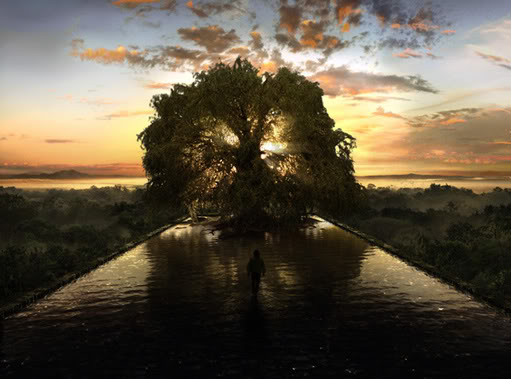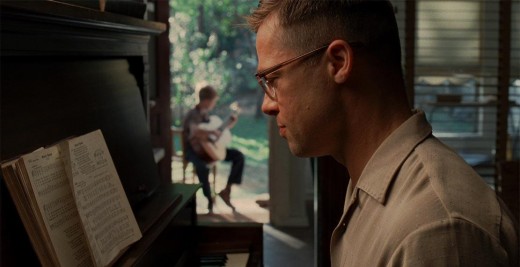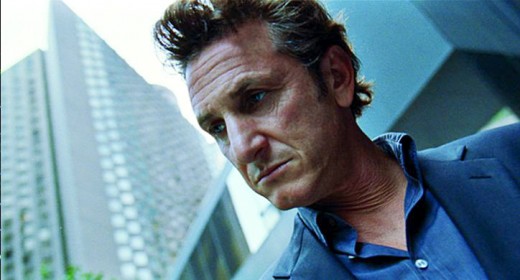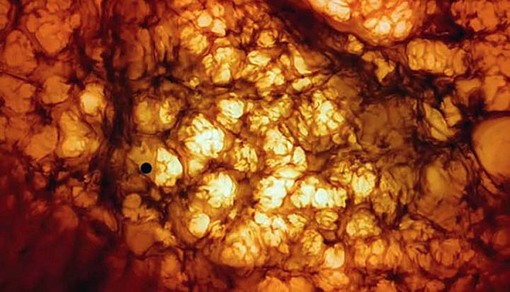Tree of Life (2011) - An Abstract Voyage

Having see other Malick films, I knew not to expect anything like a coherent story line in the conventional sense. Malick uses film as if it were a flowing canvas, and I admire his attempts to create something art worthy through sparse dialogue and lush scenery. Sometimes his blending of cinematic elements work like paint to create impressive abstractions; other times the end result leaves one with a hang-over like sense of discordant tones.
The first segment of the film reminded me of Kubrick's 2001: A Space Odyssey -- the worst part of it actually, where Dave Bowman seems to enter the giant monolith floating near Jupiter and is exposed to the birth and death of cosmic bodies and indescribable anomalies.
This section of The Tree of Life needed to be edited down (cut) a great deal. Then we see how life evolves on planet Earth, and how it is destroyed by a stray asteroid, but gives rise to new creatures.
Intertwined in this astronomy and anthropology lesson is Sean Penn (Jack as an older man) walking through various landscapes in a business suit.
The middle of the film is the most coherent, in that we see the completely opposite philosophies toward life that Jack's mother and father possess. Jack and his brothers obviously come out of this atmosphere very scrambled.
The last chunk of the film seemed to present a massive reunion of souls, where aging/appearance is a meaningless trifle because there is so much exultation.
Malick must be a struggling Christian, but he needs to read (and practice) much more Buddhism (preferably Zen), along with a healthy serving of Taoism.
Christianity doesn't do a great job at pushing our minds toward a tranquil, non-contextual reconciliation of opposites. The Taoist symbol of the yin/yang perfectly depicts the harmony that reconciles the universal pain/joy of polar opposites. Each force has an element of its opposite within its core -- thus all of life is filled with contradiction, but a contradiction that fuels the energies of creation and continuity.
Malick seems to suggest that the answer for duality can be found through the experience of love -- the love of everything.
I didn't care for the film, but I credit Malick's effort to use film in an unconventional manner.






